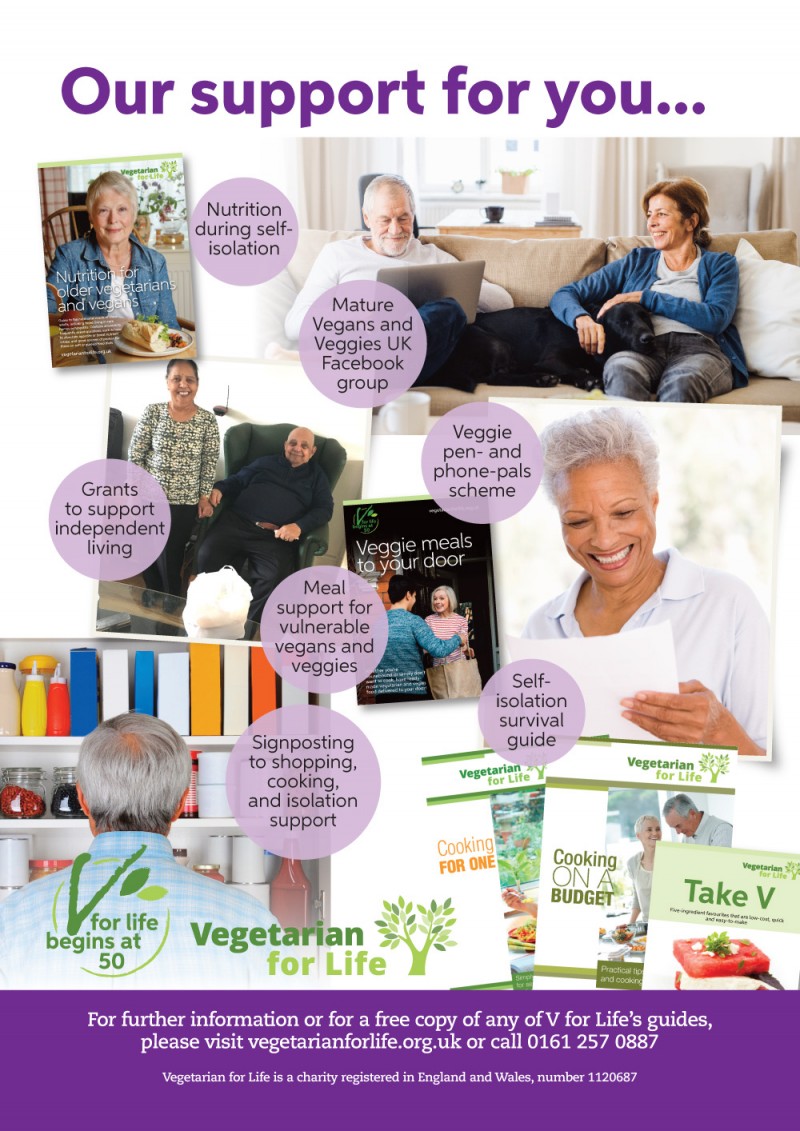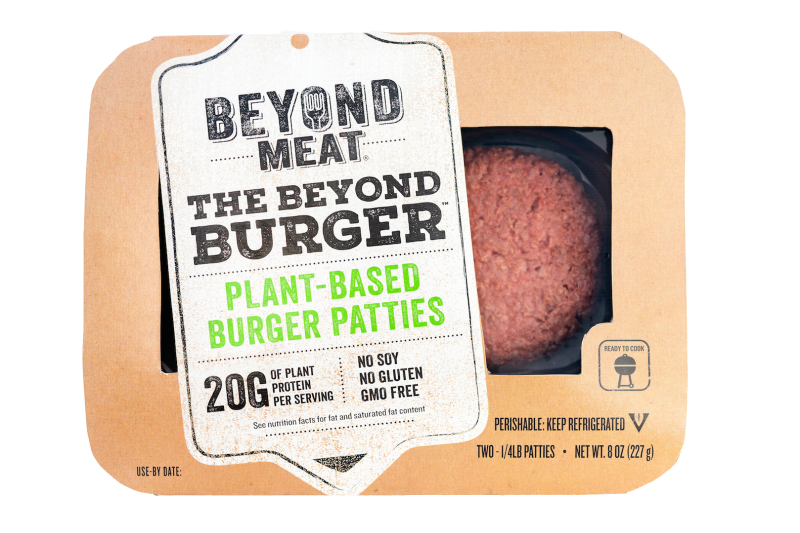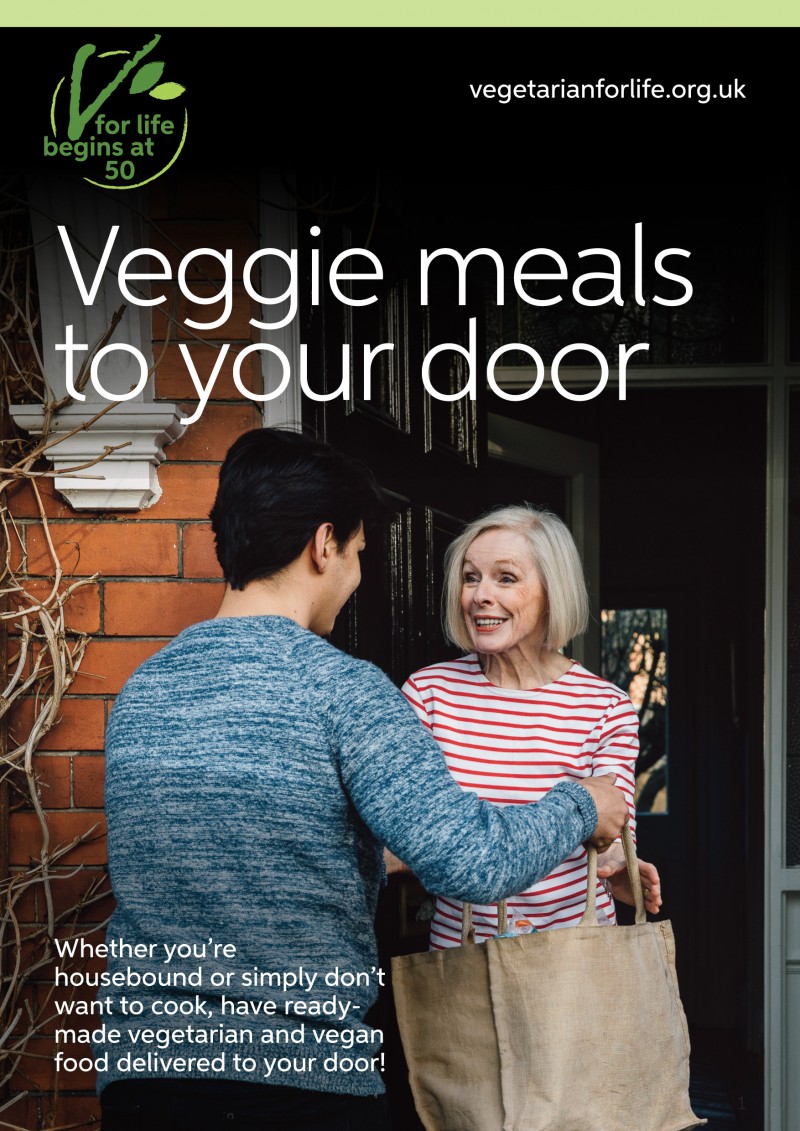With a fresh 'lockdown' in place, this might be a worrying time for many. Here are some tips on preparing as best you can, and how you might still keep in touch with others during this period.

When you have seemingly bare cupboards, or have bought whatever you were able to nab, the Supercook recipe search engine might save the day. Simply type in the ingredients that you have in your cupboards, fridge and freezer, and it will come up with a raft of recipes you can make without leaving the house to buy more.
Perhaps you’re wondering about the best foods to buy when you're going to be at home for a long period of time? What are the most nutritious foods to eat, and what should you try to stock up on?
Making nutrition a priority is particularly important for a healthy immune system. But thankfully there are some key things you can do to keep it simple and eat well, even when housebound.
Pick ambient foods, such as canned goods, pastas, rice and beans. Make the most of your freezer if you have one, where you can store breads, vegetables, fruits and more. Stock a good variety of foods where possible, so that you don't rely too heavily on items that might easily run out at the supermarket.
Find out what shopping and home delivery services your local Age UK offers, here.
Shopping for someone else? Here are some simple ways to help ensure that community grocery boxes are inclusive for all.
What to buy for your store cupboard
What to buy for your freezer
Remember, fresh foods can be frozen, allowing you to enjoy them at a later date. Some foods that freeze well, but that you might not typically freeze, include plant milk, vegan cheese and breads.
Research has shown that frozen fruit and vegetables can have just as many vitamins as fresh. Frozen strawberries, blueberries and raspberries can be used for smoothies, while broccoli, spinach, carrots, cauliflower, greens beans and peas can be used as a side dish or mixed with pasta or rice.
If struggling to eat fresh, don’t forget that prepackaged items such as pizza and veggie burgers can be handy to have in the freezer to make a quick dinner.
We understand this is all easier said than done because the supermarkets are so busy currently, and the shelves are emptying out of many essentials. Many supermarkets are now dedicating an hour at the start of the day for only older people to stock up on any essentials that they need.
You can also find out what shopping and home delivery services your local Age UK offers, here.

Another meal is possible
Finally, when you have seemingly bare cupboards, or have bought whatever you were able to nab, the Supercook recipe search engine might save the day. Simply type in the ingredients that you have in your cupboards, fridge and freezer, and it will come up with a raft of recipes you can make without leaving the house to buy more.
If shopping really isn’t an option, Vegetarian for Life has a great guide called Veggie Meals to Your Door. It details all of the companies that can deliver vegetarian and vegan meals – either hot, chilled or frozen – straight to your home. The guide can be found here or we can post a copy to you, free of charge. Please contact us on 0161 257 0887 if you'd like more information.

Making the most of some time at home
If you are having to self-isolate at home, you may well start to feel lonely. Keep your spirits lifted by exercising, watching TV, reading a good book, or listening to the radio, with the window open where possible, for a light breeze of fresh air. Why not start that new hobby you've always wanted to have a go at? Or take advantage of the time of year and begin sowing seeds in the garden for a few veggies of your own creation.
Below: The incredible 81-year-old vegan whose mission is to complete ONE MILLION press-ups.

Stay connected
It’s important to keep in contact with your friends and family, so why not make use of progams such as Facebook and Whatsapp for sharing photos and a (virtual) face-to-face chat?
Vegetarian for Life runs the Mature Vegans and Veggies UK group on Facebook, which already has over 1,400 members. You can also try Skype video calling if you have a computer or laptop at home, or via your mobile phone.
If the telephone or writing are more your thing – but you don't have anyone to reach out to – why not try The Silver Line's free helpline on 0800 4 70 80 90?
The Silver Line offers an emotional lifeline to many, giving older people a place to turn to for whatever they need. More information can be found on the charity’s website at https://www.thesilverline.org.uk.
Alzheimer Scotland also has a 24 hour Freephone Dementia Helpline on 0808 808 3000, which you could use for support and information, and if you or a family member need help with things such as shopping or collecting medication.
Last but not least, Vegetarian for Life runs a veggie pen- and phone-pal scheme, exclusively for older vegetarians and vegans. The scheme offers you the chance to make new friendships with like-minded people up and down the country.
Contact made through the scheme might lead to close friendships being formed, and can offer reassurance that there is someone you can approach to discuss a particular topic or interest with. Full details are available on our website here or call us on 0161 257 0887 for a hard copy in the post.
We hope that you and yours stay well during this difficult time. If you're experiencing any difficulties, please don't hesitate to reach out to us.
Categories:
Articles
Life After Retirement
Questions Answered